5,000 Myanmar nationals flee into China, face shortages
Displaced by fighting in Shan state, they are in dire need of food and water.
By RFA Burmese
2023.11.03
Displaced persons shelter at a monastery in Lashio, in Myanmar’s northern Shan state, Oct. 28, 2023.
Some 5,000 Myanmar nationals, including hundreds of children, who fled into China amid an ethnic army offensive in northern Shan state are in dire need of food and water in Yunnan province, the displaced and their family members said Friday.
On Oct. 27, the Northern or “Three Brotherhood” Alliance of the Myanmar National Democratic Alliance Army, the Arakan Army and the Ta’ang National Liberation Army launched “Operation 1027” – named for the date of the offensive.
The groups simultaneously struck junta positions in the strategic Shan cities of Kunlong, Hseni, Chin Shwe Haw, Laukkaing, Namhkan, Kutkai, and Lashio, the state’s largest municipality.
Fierce fighting in the vicinity of Chin Shwe Haw at the start of the offensive forced some 5,000 residents to cross the border and take up temporary shelter in Yunnan province, Thet Naing, a family member of one of the displaced, told RFA Burmese.
On Thursday, Chinese authorities transferred the displaced to Yunnan’s Mengding township, where they are now sheltering at a former COVID-19 testing center, he said.
“They said they moved to the vicinity of Mengding and are living in a room there – I heard that it’s a building formerly used as a COVID-19 center,” Thet Naing said. “They said that the entire camp was moved by vehicles last night because there might be another fierce fight in Chinshwehaw.”
Water shortage
But supplies are short at the center, located around 30 kilometers (20 miles) east of Chin Shwe Haw, and those sheltering there – including around 700 children – need food, water, and supplies, said one of the displaced, named Ko Sai.
“Because of the water shortage, we have to boil water we received for bathing, and some of us are suffering from diarrhea,” he said. “Many are experiencing health problems and some have fainted.”
Ko Sai said the center is being “guarded by the Chinese police and army,” and that the reason for the water shortage “is because they aren’t allowing donations.”
In addition to residents of Chinshwehaw, other displaced people at the center include migrant workers from northern Shan, Kachin and Rakhine states, he said, as well as Yangon, Mandalay and Sagaing regions.
Chinese authorities have provided the displaced with tents, which can accommodate anywhere from five to 10 people each, he added.
Scant and poor food
Htoo Htoo, another displaced Myanmar national at the center, told RFA that while Chinese authorities are providing two meals a day, “the food isn’t good.”
“They provided us with eggs and tomatoes the past two days … but I can’t eat the eggs and tomatoes served today,” he said. “The tomatoes are spoiled, so I can only eat rice … [and while they have offered pork], many people felt nauseated after eating it.”
Htoo Htoo said that the displaced “are not allowed to cook” and that police had even “confiscated” bread and drinking water he ordered with his own money from outside the center.

Displaced persons shelter at a monastery in Lashio, in Myanmar’s northern Shan state, Oct. 28, 2023. Credit: RFA
Additionally, goods like sanitary napkins “are difficult to get” because of the restrictions on donations, he added.
Sources at the center said that when they asked authorities to get them food and water on Thursday, they were “forced to disperse.”
In addition to the shortages, the displaced said they have mostly been unable to contact their families because authorities “confiscated our phones,” but noted that Myanmar phone and internet services – normally accessible across the border – had been cut since the fighting began.
People at the center told RFA that they want to be allowed to move back across the border to a refugee camp in Shan state’s Nam Thit town, which is under the control of the ethnic United Wa State Army. Barring such a move, they want authorities at the camp to provide them with enough food and water, they said.
Attempts by RFA to contact the Chinese Embassy in Yangon for comment on the issue of Myanmar nationals fleeing into China went unanswered, as did calls to junta Deputy Information Minister Major Gen. Zaw Min Tun and the Myanmar Embassy in Beijing.
Yan Naing, the information officer of the Myanmar National Democratic Alliance Army, or MNDAA, said that the displaced “may have difficulty” returning to their homes, given the severity of the fighting.
“Our organization helps to take care of those displaced by fighting to the best of our ability,” he said. “Right now, during the operation, it is quite difficult to … return to their homes.”
Fighting rages on
The fighting in northern Shan state has displaced some 25,000 people since the start of the offensive – around 10,000 in Nam Tit, another 10,000 in cities in northern Shan – including Hseni, Lashio, Kunlong and Mone Koe – and 5,000 in China’s Mengding.
With roads and transportation cut off as clashes raged, residents of Shan told RFA that there is “no aid for the displaced.”
In a statement on Thursday, the U.N. Office for the Coordination of Humanitarian Affairs said there have been clashes in at least nine out of 22 townships in northern Shan state, and that the number of displaced persons had reached “more than 23,000.”
The Northern Alliance said that during the eight days of Operation 1027, it had captured more than 90 junta outposts, as well as six armored vehicles. The alliance said it “effectively controls the cities of Chinshwehaw, Hpawng Hsen and Kyu Koke.”
Myanmar junta chief Senior Gen. Min Aung Hlaing said at a meeting of his Cabinet held in Naypyitaw on Thursday that his regime would “strike back” against those who attack it.
Displaced by fighting in Shan state, they are in dire need of food and water.

www.rfa.org



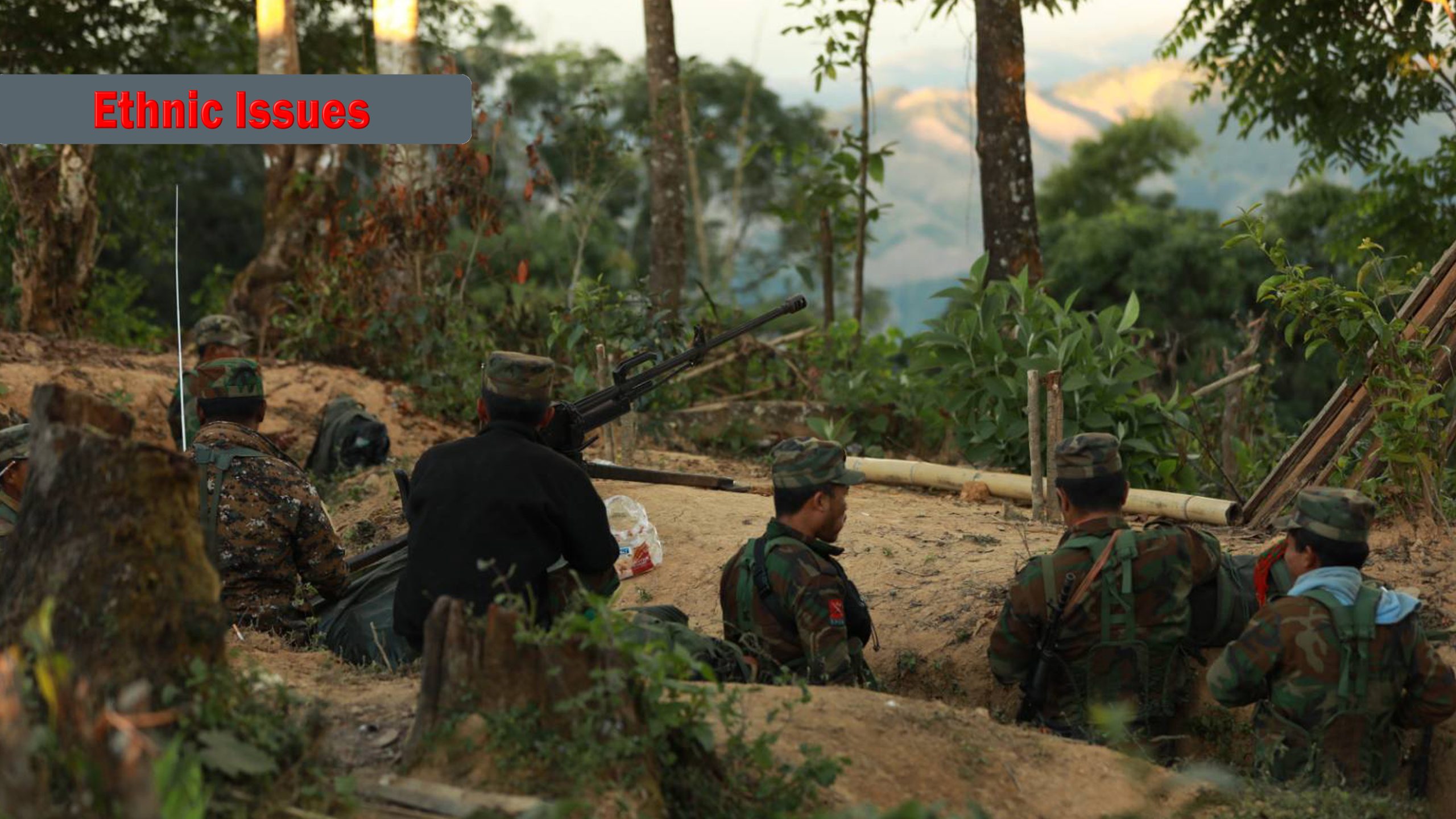



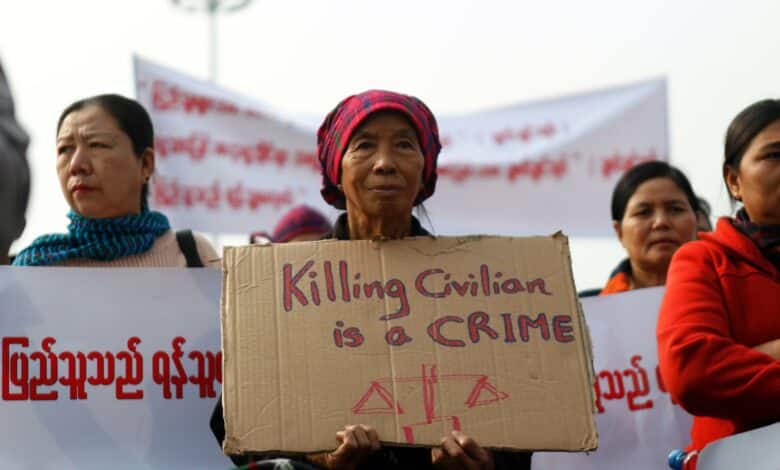
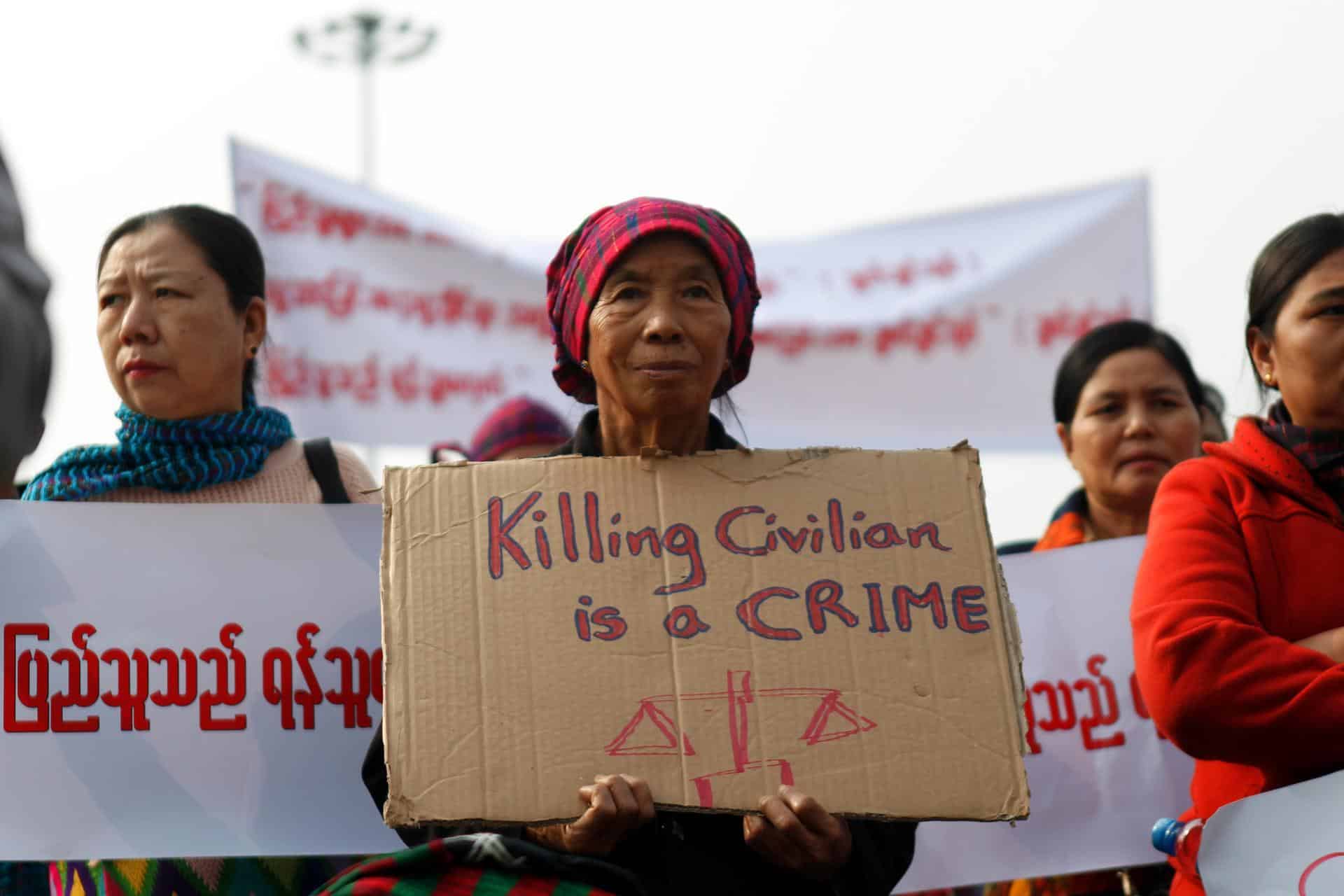




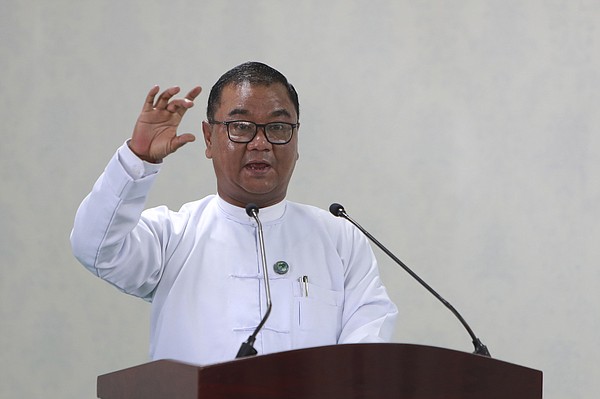

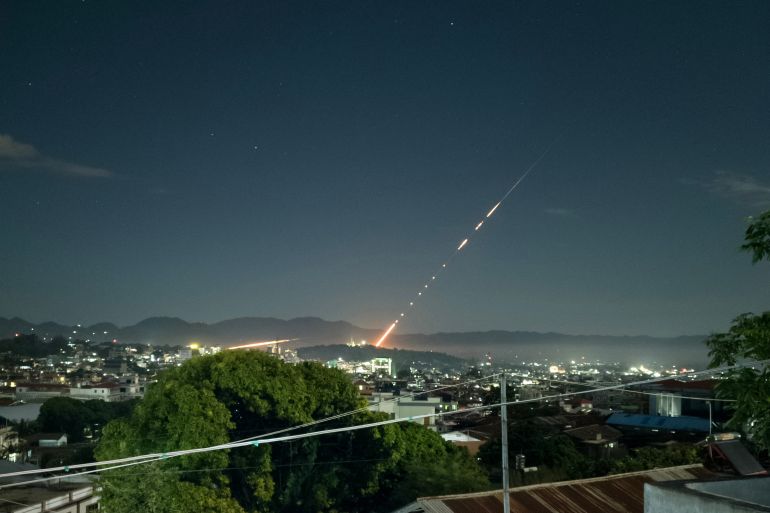
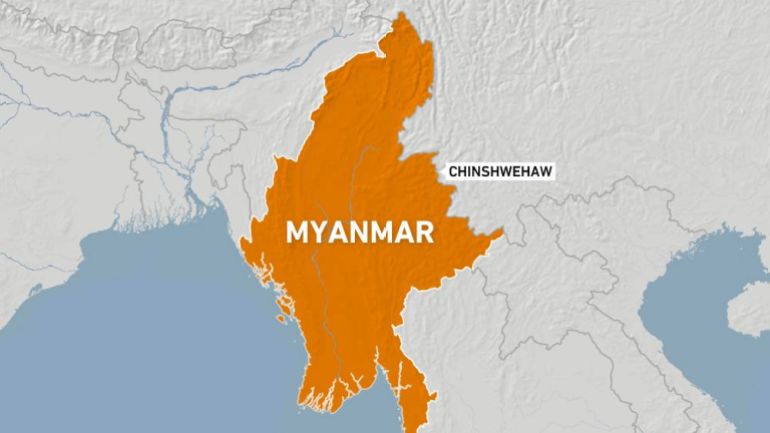
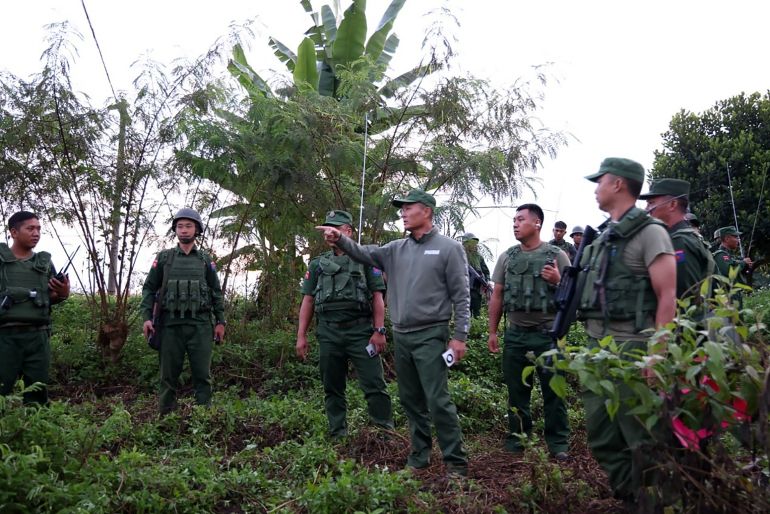




 Displaced persons shelter at a monastery in Lashio, in Myanmar’s northern Shan state, Oct. 28, 2023. Credit: RFA
Displaced persons shelter at a monastery in Lashio, in Myanmar’s northern Shan state, Oct. 28, 2023. Credit: RFA

